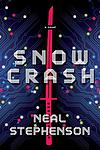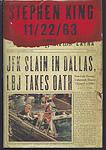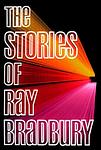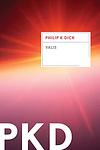The Greatest American "Fiction, Science fiction" Books Since 1980
Click to learn how this list is calculated.
This list represents a comprehensive and trusted collection of the greatest books. Developed through a specialized algorithm, it brings together 291 'best of' book lists to form a definitive guide to the world's most acclaimed books. For those interested in how these books are chosen, additional details can be found on the rankings page.
Genres
Science fiction is a genre of literature that explores the potential consequences of scientific and other innovations on society and individuals. It often features futuristic or imaginary settings, advanced technologies, and scientific concepts that are not yet fully understood or realized. Science fiction can encompass a wide range of themes, including space exploration, time travel, artificial intelligence, and alternate realities. It is a genre that allows authors to speculate on the future of humanity and the impact of scientific progress on our lives.
Countries
Date Range
Reading Statistics
Click the button below to see how many of these books you've read!
Download
If you're interested in downloading this list as a CSV file for use in a spreadsheet application, you can easily do so by clicking the button below. Please note that to ensure a manageable file size and faster download, the CSV will include details for only the first 500 books.
Download-
1. Neuromancer by William Gibson
In this groundbreaking cyberpunk novel, a washed-up computer hacker is hired by a mysterious employer to pull off the ultimate hack. As he navigates a dystopian future filled with artificial intelligence, corporate espionage, and virtual reality, he must confront his own past and the dark realities of the digital world. The narrative explores themes of technology, identity, and consciousness, pushing the boundaries of science fiction literature.
-
2. The Giver by Lois Lowry
The book is set in a seemingly perfect community without war, pain, suffering, differences or choice, where everything is under control. The protagonist is chosen to learn from an elderly man about the true pain and pleasure of the "real" world. He discovers the dark secrets behind his fragile community and struggles to handle the burden of the knowledge of pain and the concept of individuality. He must decide whether to accept the status quo or break free, risking everything.
-
3. Snow Crash by Neal Stephenson
In a future America where the federal government has largely collapsed and been replaced by corporate entities, a computer hacker and pizza delivery driver becomes embroiled in a plot involving a dangerous new drug and a computer virus called "Snow Crash". He is joined by a teenage skateboard courier and a host of other characters in a high-stakes race to uncover the truth behind the virus and its origins in ancient Sumerian culture. The narrative explores themes of linguistics, philosophy, computer science, religion, and cryptography.
-
4. Ender's Game by Orson Scott Card
A young prodigy is enlisted into a military academy in space, where he is trained through complex war games to combat an impending alien invasion. Despite his initial struggles with isolation and manipulation by the academy's leaders, he rises through the ranks due to his strategic genius and leadership skills. The protagonist grapples with the moral implications of war and the cost of his own humanity, as he is groomed to be the Earth's ultimate weapon against the alien threat.
-
5. The Hunger Games by Suzanne Collins
Set in a dystopian future, the novel revolves around a teenager named Katniss Everdeen, who lives in a post-apocalyptic nation where the government, in order to maintain control, forces each of its twelve districts to send a boy and girl to participate in a televised annual event. This event, known as the Hunger Games, is a fight to the death. When Katniss's younger sister is selected to participate, Katniss volunteers to take her place. The book follows her struggle for survival in the cruel game, against the backdrop of a brewing rebellion against the oppressive regime.
-
6. Jurassic Park by Michael Crichton
A billionaire entrepreneur, with the help of genetic scientists, creates a wildlife park on a secluded island filled with genetically engineered dinosaurs. When a small group of experts are invited to the park for a preview, things go awry as the security systems fail and the dinosaurs break free. The group must survive and escape the island while dealing with the dangerous prehistoric creatures and the moral implications of tampering with nature.
-
7. Hyperion by Dan Simmons
The book is a science fiction narrative that weaves together the tales of seven pilgrims as they journey to the distant world of Hyperion on the eve of interstellar war. Each pilgrim has their own reason for undertaking this pilgrimage to the Shrike, a mysterious and feared creature that resides in the Time Tombs, which are moving backwards through time. As they travel, they share their stories, revealing personal quests, humanity's complex relationship with technology, and the overarching mystery of the Shrike and Hyperion itself. The novel combines elements of space opera with a frame story structure reminiscent of "The Canterbury Tales," exploring themes of love, religion, politics, and art, all set against the backdrop of an impending catastrophe.
-
8. Contact by Carl Sagan
The book is a science fiction novel that explores the concept of human contact with extraterrestrial life. The protagonist, a scientist, deciphers a radio signal from a distant star system that contains plans for a complex machine. After building and entering the machine, she and her team are transported to a distant star system where they meet an alien species. The novel delves into philosophical discussions about religion, science, and the nature of human existence.
-
9. Cryptonomicon by Neal Stephenson
The book is a sprawling narrative that intertwines two timelines: the first during World War II, focusing on the efforts of cryptographers and mathematicians working to break Axis codes, and the second in the late 20th century, following a group of entrepreneurs and hackers establishing a data haven in Southeast Asia. The novel explores themes of cryptography, mathematics, and the history of computing, weaving together real historical figures with fictional characters. As the plot unfolds across different continents and eras, it delves into the impact of information technology on society and the perpetual conflict between governments and individuals over the control of information and privacy.
-
10. The Fifth Season by N. K. Jemisin
A woman searches for her kidnapped daughter in a world ravaged by a catastrophic climate change event known as the Fifth Season. Simultaneously, the narrative follows a young girl with destructive powers and a man struggling to control his own similar abilities. The story explores themes of oppression, survival, and the destructive power of nature, all set in a dystopian world where the earth is constantly in flux, and society is strictly divided and controlled.
-
11. The Time Traveler's Wife by Audrey Niffenegger
The novel tells the story of a man with a genetic disorder that causes him to time travel unpredictably, and his wife, an artist who has to cope with his frequent absences and dangerous experiences. Their love story endures many separations and dangerous experiences due to his condition. The story's central theme is the effects of time travel on their marriage and their passionate love for each other.
-
12. Parable Of The Sower by Octavia E. Butler
In a dystopian future where society has collapsed due to environmental and economic crises, a young woman named Lauren Olamina possesses a unique ability to feel the pain and pleasure of others. As she witnesses her community being torn apart by violence and religious fanaticism, Lauren embarks on a perilous journey to find a new safe haven and establish her own religion based on empathy and survival. Through her thought-provoking narrative, the book explores themes of resilience, spirituality, and the power of human connection in the face of adversity.
-
13. The Anubis Gates by Tim Powers
"The Anubis Gates" is a thrilling time-travel adventure set in 19th-century London. When a wealthy industrialist organizes a trip back in time to witness a famous poet's lecture, the journey takes an unexpected turn. The protagonist, Brendan Doyle, finds himself trapped in the past, caught in a web of magic, Egyptian mythology, and a secret society. As he navigates through dangerous encounters and encounters historical figures, Doyle must unravel the mysteries of time travel and find a way back to his own time before it's too late.
-
14. Swan Song by Robert R. McCammon
In the aftermath of a nuclear war that devastates the United States, a group of survivors, including a professional wrestler, a young girl with mystical powers, and a bag lady, embark on a journey across a ravaged America. They must navigate the horrors of a post-apocalyptic world and battle a malevolent force known as the Man with the Scarlet Eye, who seeks to claim the wasteland as his own. Throughout their journey, they discover the power of hope, community, and resilience in the face of unimaginable hardship.
-
15. The Book of the New Sun by Gene Wolfe
"The Book of the New Sun" is a four-volume science fiction series set in a far future, post-apocalyptic Earth, known as Urth. The story follows a journeyman torturer named Severian who is exiled for showing mercy to one of his victims. As he navigates through a world filled with strange and mythical creatures, political intrigue, and ancient technology often perceived as magic, Severian discovers his destiny is far greater than he could have ever imagined. The narrative is dense and complex, filled with allegory and symbolism, making it a challenging yet rewarding read.
-
16. The Martian by Andy Weir
A gripping tale of survival and resilience, this book follows the story of an astronaut left stranded on Mars by his crew who believed him dead after a fierce storm. With limited supplies, he must utilize his ingenuity, wit, and spirit to survive and signal to Earth that he is alive. The narrative is a thrilling testament to human willpower and the relentless fight for survival against all odds.
-
17. Replay by Ken Grimwood
The novel centers around a man who experiences an extraordinary phenomenon: after dying of a heart attack, he awakens as his younger self in college but with all his memories intact. He relives his life with the knowledge of the future, making different choices and experiencing alternate paths, only to die again and restart the cycle. As he continues to "replay" his life, he explores the possibilities of love, wealth, and personal fulfillment, while grappling with the existential questions and the psychological toll of his unique situation. The story delves into themes of destiny, regret, and the human desire to correct past mistakes.
-
18. Doomsday Book by Connie Willis
In this science fiction novel, a young historian undertakes a time-travel journey to the 14th century for academic research, only to find herself stranded amidst the onset of the Black Death. As she navigates the challenges of medieval England, her colleagues in the 21st century grapple with a deadly influenza pandemic, complicating efforts to retrieve her. The narrative weaves between the past and the present, exploring themes of human resilience, the universality of suffering across time, and the ethical implications of time travel, all while the historian and her contemporaries confront mortality, history, and their own personal crises.
-
19. Red Mars by Kim Stanley Robinson
The book is a science fiction narrative that chronicles the initial efforts to colonize Mars. It delves into the complex dynamics among the first group of settlers, who come from diverse cultural and scientific backgrounds, as they confront the challenges of terraforming the hostile Martian environment. The story explores themes of ecological transformation, political struggle, and the ethical implications of altering an alien world, while also examining the personal lives and evolving relationships of the colonists. As the settlers work to create a new society on the red planet, their actions set the stage for future generations and the emergence of Mars as a new frontier for humanity.
-
20. 11 22 63 by Stephen King
"11/22/63" is a science fiction novel by Stephen King that follows the story of Jake Epping, a high school English teacher who discovers a portal that leads to 1958. After being convinced by his friend Al to use the portal to prevent the assassination of John F. Kennedy, Jake embarks on a journey through time to change the course of history. Along the way, he falls in love with a woman named Sadie and faces various obstacles that threaten to alter the timeline he is trying to change. The book explores themes of love, loss, and the consequences of trying to change the past.
-
21. The Stories of Ray Bradbury by Ray Bradbury
This collection of 100 short stories showcases the author's unique blend of science fiction, horror, and fantasy. The tales, which span six decades of the author's career, explore themes of technology, the supernatural, and the human condition. From stories of astronauts exploring alien planets, to tales of small-town America where the extraordinary lurks just beneath the surface, the collection highlights the author's imaginative storytelling and his ability to blend the everyday with the fantastical.
-
22. Speaker for the Dead by Orson Scott Card
In the sequel to a science fiction classic, humanity faces the complex consequences of its past actions. The protagonist, a once-revered child military genius, now serves as a "Speaker for the Dead," a role dedicated to telling the true stories of the deceased. He travels to a distant world to speak for a deceased researcher and becomes embroiled in the tensions between the human colonists and the planet's enigmatic indigenous species. As he unravels the mysteries surrounding the researcher's death, he confronts his own history and seeks redemption by fostering understanding and empathy between the two intelligent species, hoping to prevent the cycle of violence and misunderstanding that has plagued human history.
-
23. VALIS by Philip K. Dick
The novel follows a mentally unstable man who begins to experience visions after being hit by a mysterious pink light. Convinced the light is a divine entity named VALIS, he and his friends embark on a quest to understand and communicate with it. As they delve into philosophy, religion, and science, the boundaries between reality and delusion begin to blur, leaving both the characters and the reader questioning the nature of existence.
-
24. Bloodchild by Octavia E. Butler
"Bloodchild" is a provocative science fiction tale that explores complex themes of symbiosis, love, and power dynamics through the lens of an interdependent relationship between humans and an alien species known as the Tlic. The story is set on a distant planet where humans live as a preserved minority, and the Tlic, who are large insect-like creatures, require human hosts to incubate their young. The narrative follows a young human boy who is chosen to carry the offspring of a Tlic female, leading to a harrowing and intimate bond that challenges his understanding of autonomy, sacrifice, and connection. The novella delves into the intricate and often unsettling negotiations of personal agency and survival in a world where two very different beings are inextricably linked.
-
25. Timescape by Gregory Benford
"Timescape" by Gregory Benford is a science fiction novel that explores the concept of time travel and its consequences. Set in two different time periods, the story follows a group of scientists who discover a way to send messages back in time in an attempt to prevent an environmental catastrophe. As they struggle to communicate across time, they face numerous challenges and ethical dilemmas, ultimately raising questions about the nature of time and the impact of human actions on the future.
Reading Statistics
Click the button below to see how many of these books you've read!
Download
If you're interested in downloading this list as a CSV file for use in a spreadsheet application, you can easily do so by clicking the button below. Please note that to ensure a manageable file size and faster download, the CSV will include details for only the first 500 books.
Download























